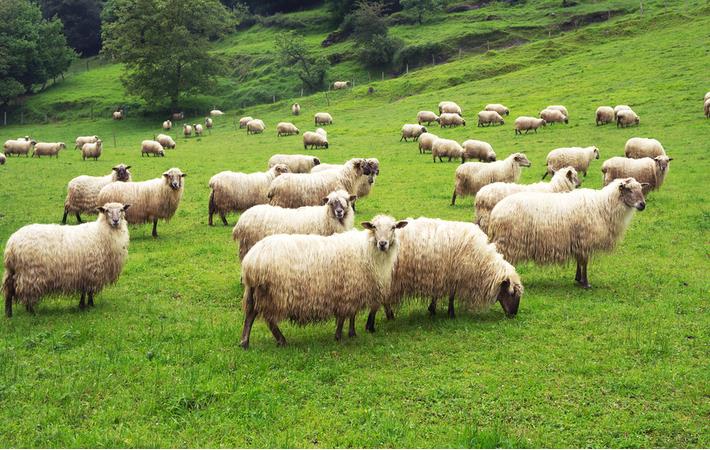Ternua has converted the Latxa sheep’s wool, seen as waste, into thermal insulation for jackets in a circular economy project called Latxa Artile (Latxa wool in Basque). The first jackets designed with the Artileshell technology, to be called Artile Jacket, will be part of the autumn-winter collection 2020-2021 of Ternua and will be available in October.
This is an initiative promoted by the brand in collaboration with the association Muturbeltz, the village Lamariako Azpikoa in Antzuola, the company Iletegia in Lapurdi, along with the support of the department of environment of the Provincial government of Gipuzkoa. The project aims to provide value to the wool from the Latxa sheep farms by providing a stable outlet and create a circular economy market that involves the entire value chain.Ternua has converted the Latxa sheep's wool, seen as waste, into thermal insulation for jackets in a circular economy project called Latxa Artile (Latxa wool in Basque). The first jackets designed with the Artileshell technology, to be called Artile Jacket, will be part of the autumn-winter collection 2020-2021 of Ternua and will be available in October.#
There are about 1 million Latxa sheep in the Basque Country However, their wool is an environmental problem for shepherds as it has no commercial value and cannot be disposed of.
The rise of synthetic fibres in the textile sector and the hegemony of Merina sheep wool as a first-layer material have made Latxa sheep wool, a product that has been historically valuable and which has sustained the economy of small Basque villages, practically irrelevant, turning the fleece of the sheared herd into an environmental problem. These sheep have been converted to dairy use, and their wool has become rougher, harsher, and harder to work with.
According to data from Iletegia, a company based in the French Basque Country specialised in the processing of wool, there is an average of 2.5 kilogram of wool per sheep; 2000 tons for the entire Basque Country. “Its processing to create an insulating layer is very complicated. We have attempted for years for the wool processing industries in France to create something with our Laxta wool, but the response is always negative due to its morphology and roughness. This is the reason we've taken on the challenge and have purchased our own machines, which we have adjusted and modified to achieve what we were told was impossible,” says Aña Andiazabal and Aitor Zubillaga, from the company based in Sara.
The environmental delegate, José Ignacio Asensio, explained that "with fewer and fewer resources available, it is necessary for the industry to change its processes and place sustainability and the fight against climate change at the head of its business models. In short, we must start creating fashion with a positive impact on the planet.” Asensio noted that “Latxa Artile is the best example of collaboration between the government, the commodities sector, and the industry. Thanks to this project, high-performance clothing acquires a dimension of co-responsibility and a boost for circular economy and the regional economy”.
Since 2009, Ternua has been carrying out R and D testing for the use of this raw material, as it has many properties - antibacterial, thermal insulation, thermoregulatory, air retention, and it functions well when wet and as a flame retardant. The sheep are professionally sheared with each fleece cut as one piece so as not to break the fibres and to maintain all the properties of the wool intact. In order to achieve a viable production process, it has the experience of Muturbeltz, an agroecological, artistic, and cultural association located in Carranza, aimed at promoting Carranza sheep and the occupation of shepherd, which will help Ternua in the selection of wool to obtain the ideal quality for subsequent development of the textile, which will be created by the company specialised in the manufacture of Iletegia wool. The resulting insulation will be sent to Ternua for the jacket design process.
Also, to be taken into account is the ease of the jackets for repair, and disassembly for recycling once they reach the end of their useful life.
The solution proposed by Latxa Artile will reduce the amount of waste while adding value to a by-product that has a high potential for use. In addition, use for thermal insulation from a regional product will reduce the environmental impact resulting from the import of technical materials for the jackets. The use of a biodegradable and easily generated material such as sheep's wool will become an alternative to the use of oil-based insulating materials with their associated environmental impact during extraction (GHG emissions, water and soil pollution, etc) and manufacture, since they require the use of chemicals.
Fibre2Fashion News Desk (SV)
